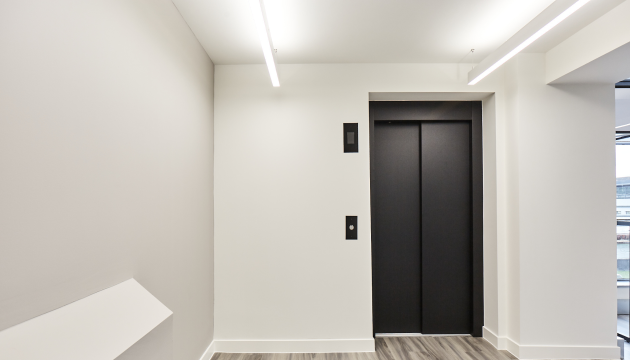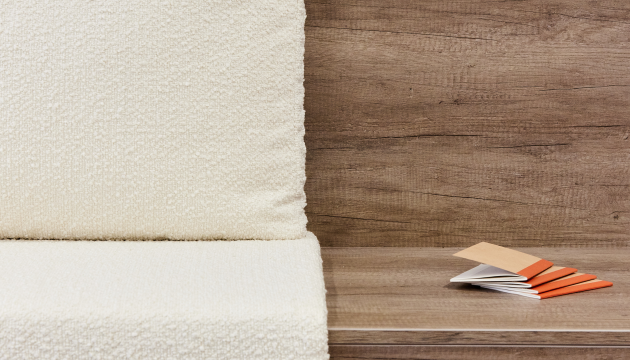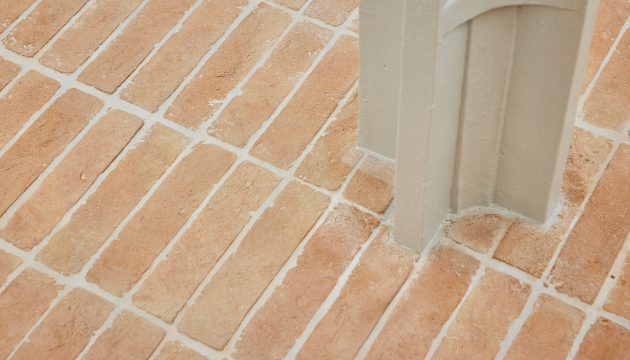Cement and concrete industry’s emissions have doubled in 20 years. New data reveals emissions increased from 1.2 to 2.6 billion metric tonnes between 2002 and 2021. That’s 7% of annual emissions.
The growth of the sector’s emissions can be attributed to its physical and financial growth – particularly with the sharpest expansion recorded in China. China now accounts for around half of global production.
As developers face calls to scale up low-carbon schemes and reach net zero – what are some radical solutions?
Here are three pioneering materials seeking to remould the building fabric of the future.
HEMPCRETE
The hemp plant is one of the fastest-growing renewable resources: it takes four months to grow and can be harvested in perpetuity. It has little or no demand for water, chemicals or fuel.
When mixed with lime and water, hemp fibres create a concrete-like material, but lighter, stronger, and biodegradable.
Lime releases 80% less carbon than traditional cement, while more atmospheric carbon is locked away in hemp for the lifetime of the building than used it its production and use. Hempcrete is a “better-than-zero-carbon material”.
As a building material it is damp-free, chemical-free, provides flexibility to the structure plus extraordinary thermal performance. The interior of hempcrete buildings remain at a near constant temperature with little demand on heating and cooling systems.
MYCELIUM
Mycelium is the vegetative state or root structure of mushrooms. The great recyclers of the earth, they can thrive off the toxins in a cigarette butt as well as the world’s most noxious, radioactive chemicals. We are only just beginning to unearth their potential – particularly as building materials.
Mycelium brick is in early development stage. Its compressive strength is only around 30 psi, dramatically less than concrete’s 4000 psi. Though it cannot support nearly as much weight, it is much lighter: a mushroom brick weighing only 43 kg/m³ vs. a 2,400 kg/m³ concrete equivalent. Mycelium’s low density makes it very useful as an insulator and other non-load bearing structures. It can be used in a composite board (Myco-board), used much like MDF without the dangerous formaldehyde when sawn.
Because mycelium is naturally self-extinguishing and air purifying at the same time, it actually removes carbon from the atmosphere and becomes even stronger in the process.
It is 100% biodegradable, massively reducing a building’s embodied and operational carbon footprint.
ADAPTAVATE
UK start-up, Adaptavate, are world leaders in carbon-negative building. Their pioneering materials are ecologically regenerative – built on the formula Nature + Science = Superior Performance.
In nature, waste in non-existent. Adaptavate are replicating that continuous cycle in the construction world – on an industrial scale for the mainstream industry.
Adaptavate’s technology is a direct alternative to plasterboard, the third most-used building material in the world. In the UK, it is responsible for 3.5% of the country’s annual emissions.
Their new plasterboard – BreathaBoard – is made from agricultural waste and a lime-based binding agent that absorbs CO2. The approach eliminates the need for gypsum, an emissions-intensive material that is used to make most of the basic construction material available today.
Their end product is carbon-negative and has superior performance:
- Anti-mould
- Fire-resistant
- Multi-purpose (for walls, ceilings, floors)
- Acoustic insulation
- 100% compostable
- Hassle-free installation
- Lower fuel bills – with superior thermal performance
Featured Stories & Insights
 26th February 26
26th February 26
Planned Preventative Maintenance: What Your P&L Will Never Show You
Most landlords know their income to the penny. Far fewer know what’s quietly accumulating behind...
Read More 30th January 26
30th January 26
Data, Demand & the Future of Office Performance
In conversation with Greg Blanchard, Portfolio Manager at TSP Data has become a big theme...
Read More 28th January 26
28th January 26
Goodman’s TSP Goes Nationwide with KSA Acquisition
LONDON, 20th January 2026 | News by Tim Burke, EG TSP, the office-focused property manager...
Read More 8th January 26
8th January 26
Business Rates are Changing in April: 4 things charities should watch for
Business rates are being reset in April 2026, and for charities this is a direct...
Read More 8th January 26
8th January 26
4 Ways to Win the Office Game in 2026
The office market is recovering, but not evenly. As we move into 2026, one thing...
Read More 17th November 25
17th November 25
Lessons Learnt from 2025 | by Zac Goodman
The market shifted (again), expectations changed (again), and the way people use space evolved in...
Read MoreView all